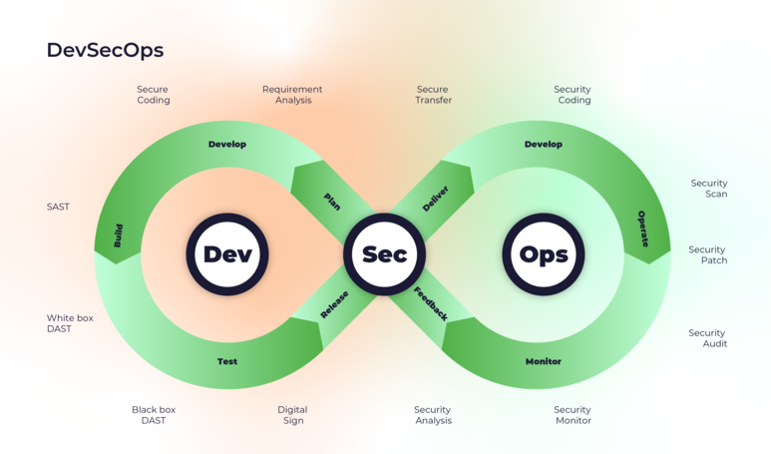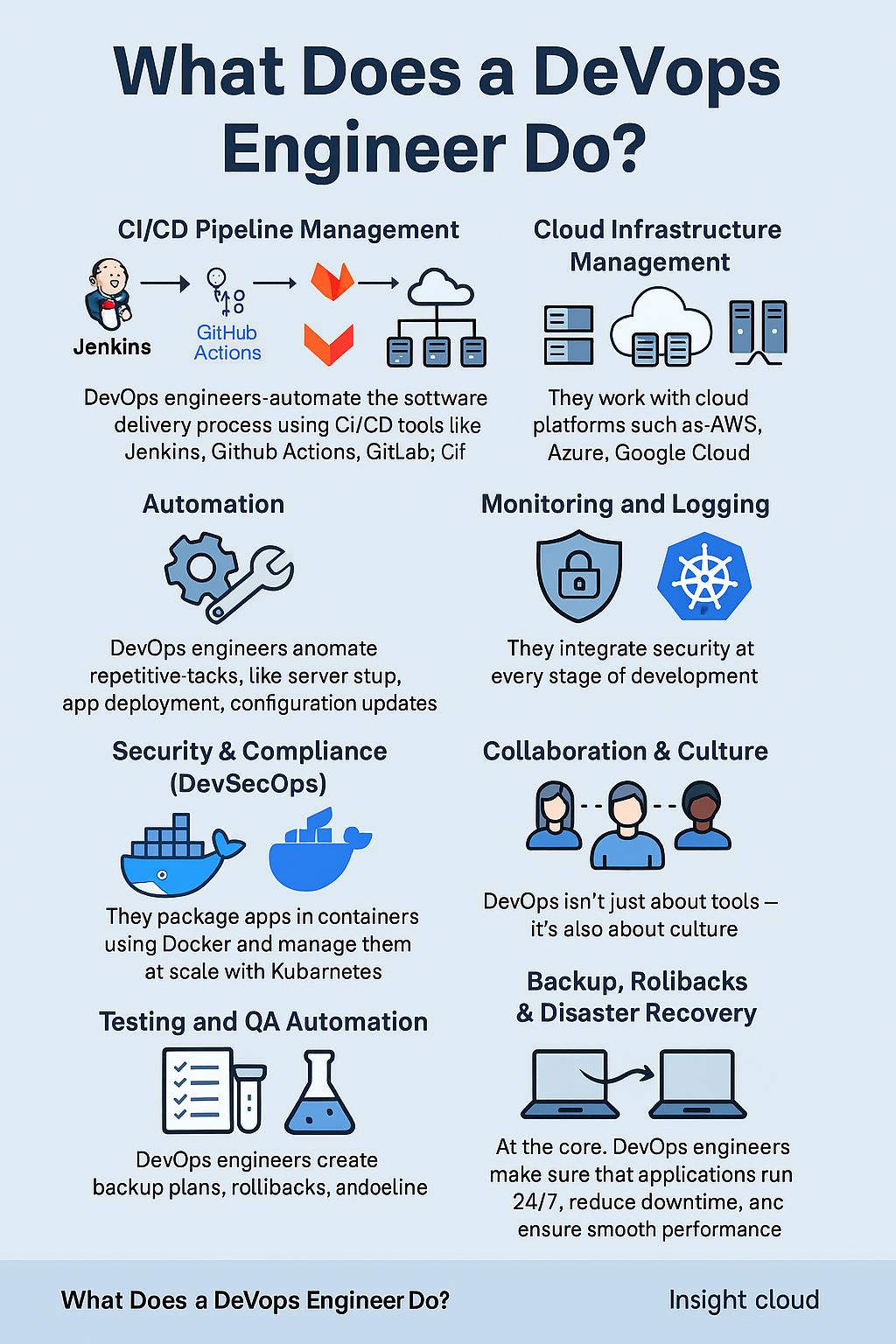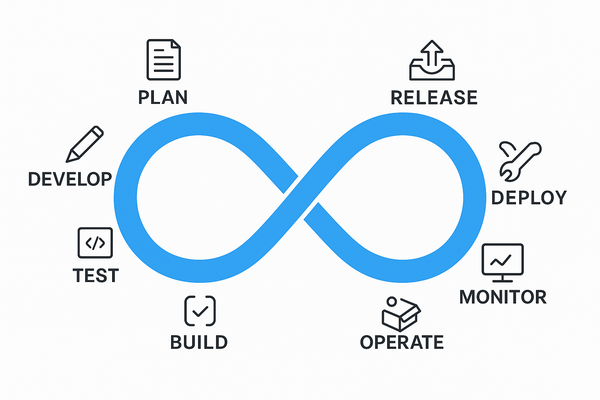In today’s digital world, attackers develop new tricks every day. They target software, servers, cloud systems, and even developers who write the code. That’s why security can’t be an afterthought anymore that is why DevSecOps and Security is very important.
Modern companies are shifting from traditional development to DevSecOps — a culture where Security is part of every step in software development.
What is DevSecOps?
Traditional workflow:
Develop product first → test security later
Problem: By the time security issues are found, it is too late and too costly to fix.
DevSecOps workflow:
Security is included from Day 1
It combines:
- Dev → Development
- Sec → Security
- Ops → IT Operations
Simple definition:
DevSecOps = Build fast + Secure fast + Deliver continuously
Why Do We Need DevSecOps?

Here are real-world problems DevSecOps solves:
| Problem | DevSecOps Solution |
|---|---|
| Frequent cyber-attacks | Security built into pipeline reduces vulnerabilities |
| Data breaches | Automated scanning stops risky deployments |
| Security delays releases | AI tools speed up compliance checks |
| Developer mistakes go unnoticed | Continuous code scanning catches issues early |
Bottom line:
Fixing small issues early → saves money, time, trust, and reputation.
How DevSecOps Works (Step-by-Step)

DevSecOps includes security in every stage:
| Stage | What Happens | Security Step |
|---|---|---|
| Plan | Requirements and design | Threat modeling |
| Code | Developers write code | SAST → Static code analysis |
| Build | Application is packaged | Dependency scanning |
| Test | QA and functional tests | DAST → Dynamic security testing |
| Release | Ready for deployment | Compliance checks |
| Deploy | CI/CD pipeline pushes to servers | Infrastructure & secrets security |
| Operate | Production monitoring | Logs + SIEM |
| Monitor | Continuous tracking | Vulnerability alerts |
This creates a continuous security loop.
AI + DevSecOps = Future of Secure Development
AI-powered tools help by:
Detecting threats in seconds
Automating compliance checks
Reducing manual effort
Predicting attack patterns
Examples of AI-driven DevSecOps tools:
- Snyk
- GitHub Advanced Security
- Aqua Security
- Prisma Cloud
- CrowdStrike Falcon
AI helps secure everything without slowing down development speed.
Key Practices in DevSecOps
| Practice | Simple Meaning |
|---|---|
| Shift-Left Security | Start security early in development |
| Zero-Trust | No user/system is trusted by default |
| Infrastructure as Code Security | Secure cloud & servers through code |
| Secrets Management | Protect API keys, tokens, passwords |
| Continuous Monitoring | Real-time attack detection |
DevSecOps in Cloud & CI/CD
Cloud services like AWS, Azure, GCP are used constantly today.
Security must cover:
Containers (Docker, Kubernetes)
Serverless functions
Multi-region cloud resources
API Gateways
Network firewalls
CI/CD pipelines must:
- Scan every build
- Block deployment if risk exists
- Auto-fix vulnerabilities wherever possible
Benefits of DevSecOps (Why Every Company Wants It)
| Benefit | Impact |
|---|---|
| Faster release cycles | Still secure, no delays |
| Lower security cost | Fix early = cheaper |
| Better product trust | Customers feel safe |
| Less manual work | More automation |
| Compliance made simple | Easy audits & regulations |
Challenges (But We Can Overcome Them)
| Challenge | Fix |
|---|---|
| Developers lack security knowledge | Training and automation |
| Too many alerts | AI-based filtering |
| Legacy systems | Gradual transformation |
| Culture resistance | Collaboration & awareness |
DevSecOps Job Roles
If someone wants a career in DevSecOps, roles include:
- DevSecOps Engineer
- Cloud Security Engineer
- Application Security Engineer
- Security Automation Engineer
- CI/CD Security Specialist
Excellent career growth + high salary demand
Final Thoughts
Security today is not optional.Every product must be:
Fast
Reliable
Secure
DevSecOps makes sure security becomes everyone’s responsibility, not just the security team.
"Secure from the start. Secure forever."
Next Steps :
- Follow our DevOps tutorials
- Explore more DevOps engineer career guides
- Subscribe to InsightClouds for weekly updates
- Devops tutorial :https://www.youtube.com/embed/6pdCcXEh-kw?si=c-aaCzvTeD2mH3Gv


